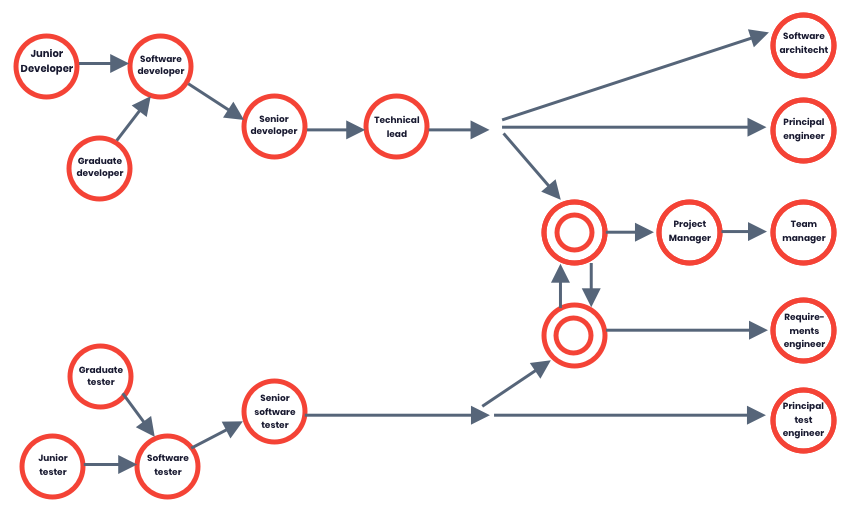Predicting the future with AI seems like a mug’s game at this point but just for fun here goes.
AI may eliminate the need for much entry-level work. If a developer can spin up the components of a web app by entering the right prompts into an AI, then the future of software development roles becomes more architectural. Maybe it becomes more about experimentation, curation, design and other ‘higher-level’ tasks more related to communication, interaction, and testing with people.

But what happens to all the junior development work? And how does one get to become an architect? i.e. where is the career pathway to architect when there is less and less junior work available? It’s easy to picture a gap emerging, where entry-level jobs that give people the experience to make them suitable for big picture jobs are disrupted by AI, making it difficult for the next generation to climb from entry-level to big picture.
At the same time AI has a huge potential to disrupt education. AI teaching assistants may perform marking, AI teachers may deliver classes and respond to student prompts. I never thought my job as a teacher would seriously be threatened by technology, but in the long run, if AI keeps advancing, it may be.
I think these two gaps might end up fitting nicely together though. If students can learn the fundamentals of topics like programming at a faster and better rate with AI assistance, like everyone in the world having a 1-on-1 tutor, then that frees up time in the traditional timeline of diplomas, degrees, etc. That time could be used to give students apprenticeship-type learning experiences, with more 1-on-1 time, a bit more similar to what graduate students receive from their advisors when completing masters and PhD programs.
Students could tackle “real-problems” in teams, with the teacher role evolving into something that’s part manager, part mentor. Like capstone projects on steroids. There are so many projects that aren’t economically feasible, but would be practically useful to society. Problems in areas like education, health, the environment and accessibility. If the latter years of post-secondary education evolve into an experiential learning and apprenticeship model to give students this “earlier in the career pipeline” experience, these problems could be tackled. And to an extent, this would be a continuation of a trend towards authentic assessments and experiential learning that has already been taking place over the last decade.
Image Source: https://ubiqum.com/why-learn-to-code/